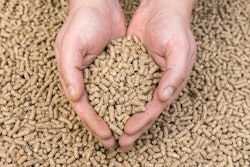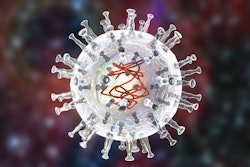
Disease outbreak would not only damage pork industry, but would affect many feed ingredients and pet food too
The U.S. stands to lose more than US$2 billion in animal food exports if the country were to be hit with African swine fever (ASF), according to the American Feed Industry Association (AFIA).
Not only would ASF devastate the country’s pork industry, it would also affect exports of dog and cat food, feather meal, fishmeal, and meat and bone meal, according to Gina Tumbarello, AFIA’s senior director of international policy and trade. Tumbarello spoke January 25 at the International Production & Processing Expo in Atlanta.
She said that, while there has been a lot of discussion in recent months about how to prevent ASF from entering the U.S., there hasn’t been much talk about what would happen to U.S. exports if there were an outbreak in the country.
Most animal-based feed products are exported on a veterinary health certificate 16-4, which certifies that the country is free from ASF, among other diseases. If the country is no longer free from ASF, all of those exports are in jeopardy because that veterinary health certificate 16-4 would no longer be valid.
“It is tied to agreed-upon negotiated protocol, so it is not something that you can just stop using,” Tumbarello said.
If a company exports a product that contains animal origin ingredients, it is likely to be affected in the event of an outbreak of ASF in the continental U.S., Tumbarello said.
However, with the animal feed industry working together with the U.S. government, there are some aspects of the trade agreements that could be altered to enable exports to continue regardless of ASF status. But it will take some work, Tumbarello said. Some options, she said, include:
- Removing the statement about being free from ASF. Because ASF is a reportable disease, there is no need to include that statement in a trade agreement.
- Have two versions of the health certificate – one that includes porcine ingredients and another that does not, “so that, at a minimum, we’ve carved out the porcine products for the purposes of ASF.”
However, any changes to that agreement would require unilateral discussions with every trading partner the U.S. has that is tied to the 16-4 document.
“My argument to that would be, if we get African swine fever, we’re going to have to address it,” Tumbarello said. “So, do we address it now, when we have time to communicate and we’re not under the gun, or do we wait until after the fact, and now we’re running around with that African swine fever. We’re trying to keep it from spreading. We’re trying to keep the protect the pork industry. We’re trying to protect our domestic movement of our products. And then we’re going to add on top of that, trying to renegotiate with a bunch of countries or a number of products all at the same time. So my argument would be, we’re in a much better position to negotiate now than after the fact. And one way or another, we’re going to have to address it.”
The one exception to the trade restrictions in the event of an ASF outbreak, she said, is Canada. The U.S. and Canada have an agreement that the two countries will continue trade even if one country has ASF. This is particularly important because Canada is the No. 1 pet food export market for the U.S.
“I’d hate to see pet food exports shut down anywhere, and certainly not Canada. That’s more than half of our total exports,” Tumbarello said.
The bottom line, she said, is that the U.S. animal feed and pet food industries could lose a lot of money, customers and suppliers if the country gets hit with ASF, so the industry needs to be proactive to minimize losses before that happens.
“I think more people need to know what’s happening, what the potential risk is. They need to understand the money that’s involved, the loss of business … how it could affect our economy, workers and employees and help them have that perspective,” Tumbarello said. “Talk to people, educate them. We’re going to do our part on our end as an association on behalf of the industry, but I think shedding some light on this side of ASF that people aren’t necessarily as familiar with is the first step.”
















